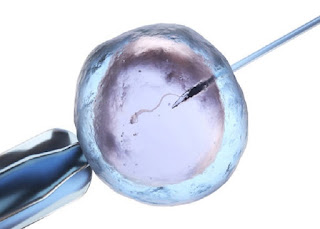Egg Donation: Giving, Receiving & Everything In Between
Egg donation can be a life-altering experience for both the donor and the recipient. It is an act of generosity that will affect all involved for years to come. More and more women are choosing to donate their eggs, and it’s a path that’s becomingly increasingly popular among those who wish to grow their families. Dr. Walid Saleh of CRE (previously SIRM-Dallas) breaks down what’s involved in donating eggs, receiving donated eggs, and the impact felt on both ends of the process.
The Egg Donation Process
Recipients
There are a number of reasons a woman may turn to egg donation in her quest to have a child. From decreased ovarian reserve to multiple failed IVF (In Vitro Fertilization) cycles to a history of chemotherapy or radiation therapy. Thanks to IVF technology we’re able to effectively overcome these fertility challenges by creating a pregnancy using a donated egg.
There are three types of egg donors. The first would be someone you know, like a friend or relative. While this is the most affordable option, it does not provide the comfort of anonymity. Another option is the use of egg banks. The cost is usually shared between several couples. In this case, the cost is less and the donor is anonymous, but the pregnancy rates are lower than with fresh eggs. In this case, the bank may sell 6 frozen eggs at a time. Those are shipped to the IVF center, thawed, fertilized and embryos transferred. In the most effective but also the most expensive option, an anonymous donor is hired, undergoes IVF, all the eggs are donated to the couple and then fertilized. In this latter example, extra embryos are frozen for more siblings in the future. This has the highest pregnancy rate as it involves the use of fresh eggs.
Once a donor is selected, the process begins by coordinating the donor and recipient’s cycles. Timing is important since the recipient’s uterus needs to be ready as soon as the embryo is ready for transfer. Fertility medications are taken to suppress hormones and “quiet” the recipient’s cycle. This is followed by eight to ten days of supplements to thicken the uterine lining and prepare it to receive the embryo.
After the embryo transfer the recipient is advised to remain on bed rest for several hours to several days, and to limit strenuous activities. Approximately nine to fourteen days post-transfer a blood pregnancy test is performed. A few weeks after pregnancy has been confirmed, the recipient will have an ultrasound to make sure the pregnancy is progressing normally.
If you think being on the receiving end of egg donation may be right for you, schedule an appointment at SIRM Dallas to learn more.
Donors
Egg donation is a very powerful decision for many women. Providing someone with the opportunity to become a parent is an amazing and rewarding feeling. Egg donation can also help you achieve your own goals. A generous contribution to another woman, egg donation is also an investment in yourself. Whether it’s for college tuition or other life expenses, the compensation you receive can help you achieve your own financial goals.
Becoming an egg donor generally begins with a screening questionnaire that covers things like health history and lifestyle choices. Donors must be healthy and between the ages of 21 and 30, and are required to undergo psychological and medical screening. Once you have been accepted as an egg donor and matched with intended parents, you’ll receive hormone injections to stimulate egg production. A doctor surgically retrieves the eggs and they go to the lab for fertilization. Once fertilized, the embryo is transferred to the recipient’s uterus where it will, if all goes well, develop into a bouncing bundle of joy.
Emotional Considerations
Learning that treatment using donor eggs is the best option for you can be surprising, and often brings up many strong emotions. A biological connection is extremely important to many people and realizing it’s not possible can be difficult to overcome. However, many of our patients say that carrying the baby – feeling every kick and hiccup – and giving birth creates an unbreakably strong connection. Our team at SIRM Dallas can help guide you through this experience as you consider your options and determine your best path to parenthood.
If you’d like to learn more about egg donation and how it could benefit you, schedule an appointment at SIRM Dallas to meet with Dr. Saleh and discuss your options.




Comments
Post a Comment